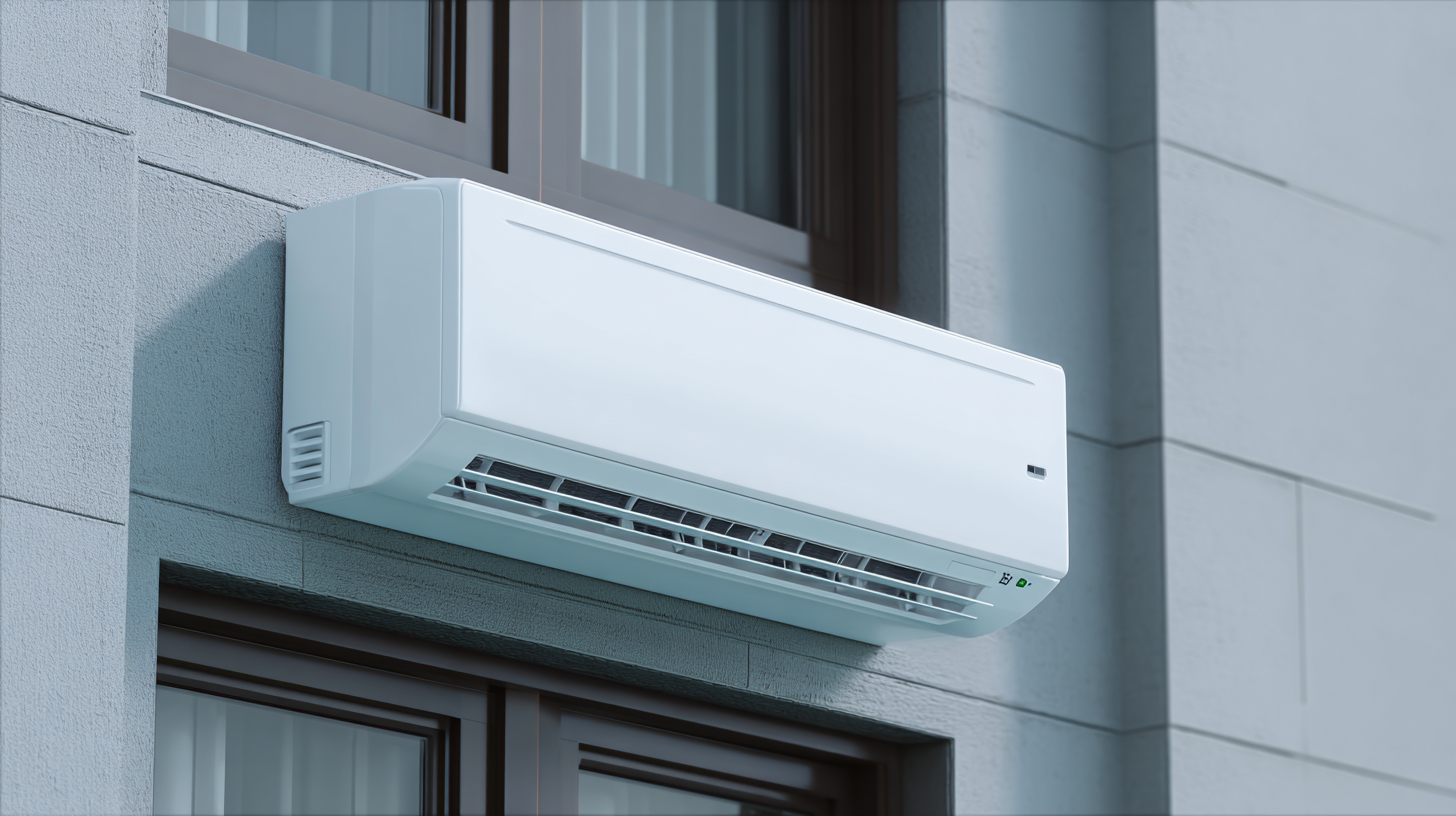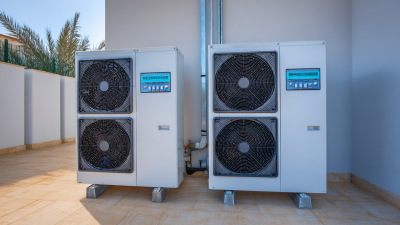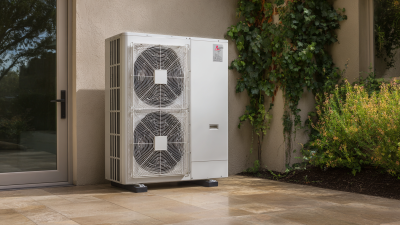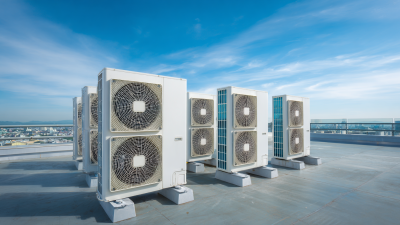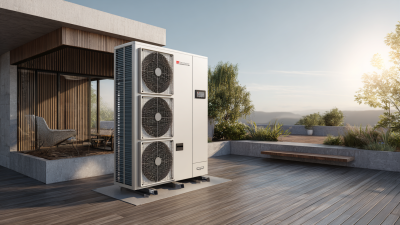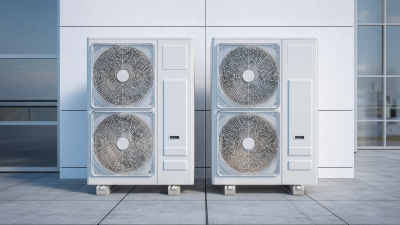Leave Your Message
In recent years, inverter heat pumps have emerged as a pivotal technology in the pursuit of energy efficiency and sustainability in heating and cooling systems. The term "inverter heat pump" refers to advanced systems that use variable speed technology to adjust their operation based on real-time heating and cooling demands, leading to enhanced efficiency. According to a report from the International Energy Agency (IEA), inverter heat pumps have demonstrated remarkable improvements in energy efficiency, achieving an average efficiency increase of 40% in 2023 compared to previous models. This significant leap not only reduces energy costs for consumers but also contributes to a decrease in greenhouse gas emissions, aligning with global targets for sustainability.
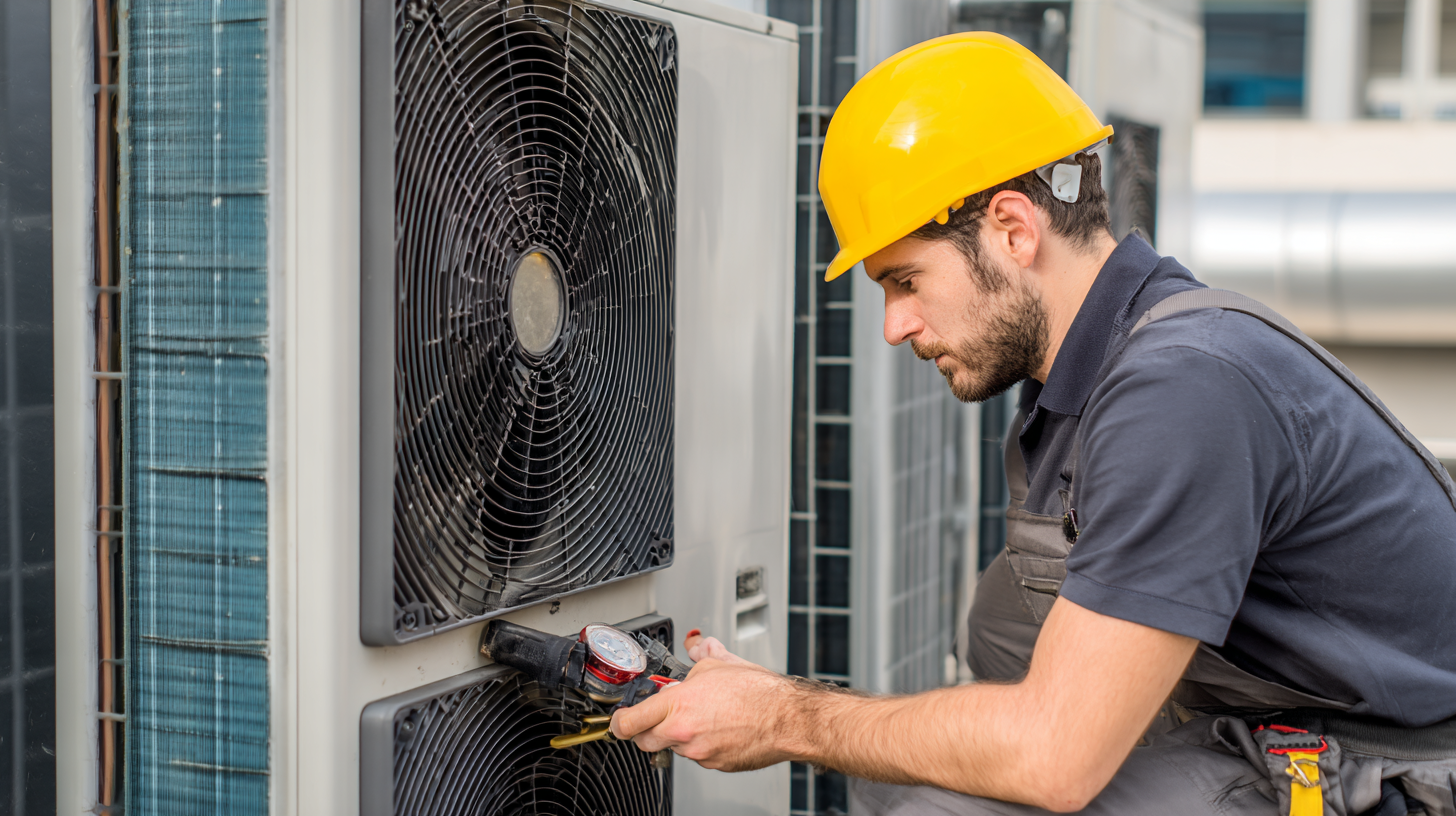
As we approach 2025, consumers face the crucial task of selecting the best inverter heat pump that meets their specific needs while capitalizing on these advancements in technology. Factors such as installation requirements, climate considerations, and energy ratings play essential roles in the decision-making process. Industry experts highlight that informed choices can lead to long-term savings and comfort, making it imperative to understand the features and benefits that different inverter heat pump models offer. By delving into the key insights from the 2023 efficiency improvements, this guide aims to illuminate the path toward selecting the ideal inverter heat pump that not only maximizes energy efficiency but also enhances overall home comfort.
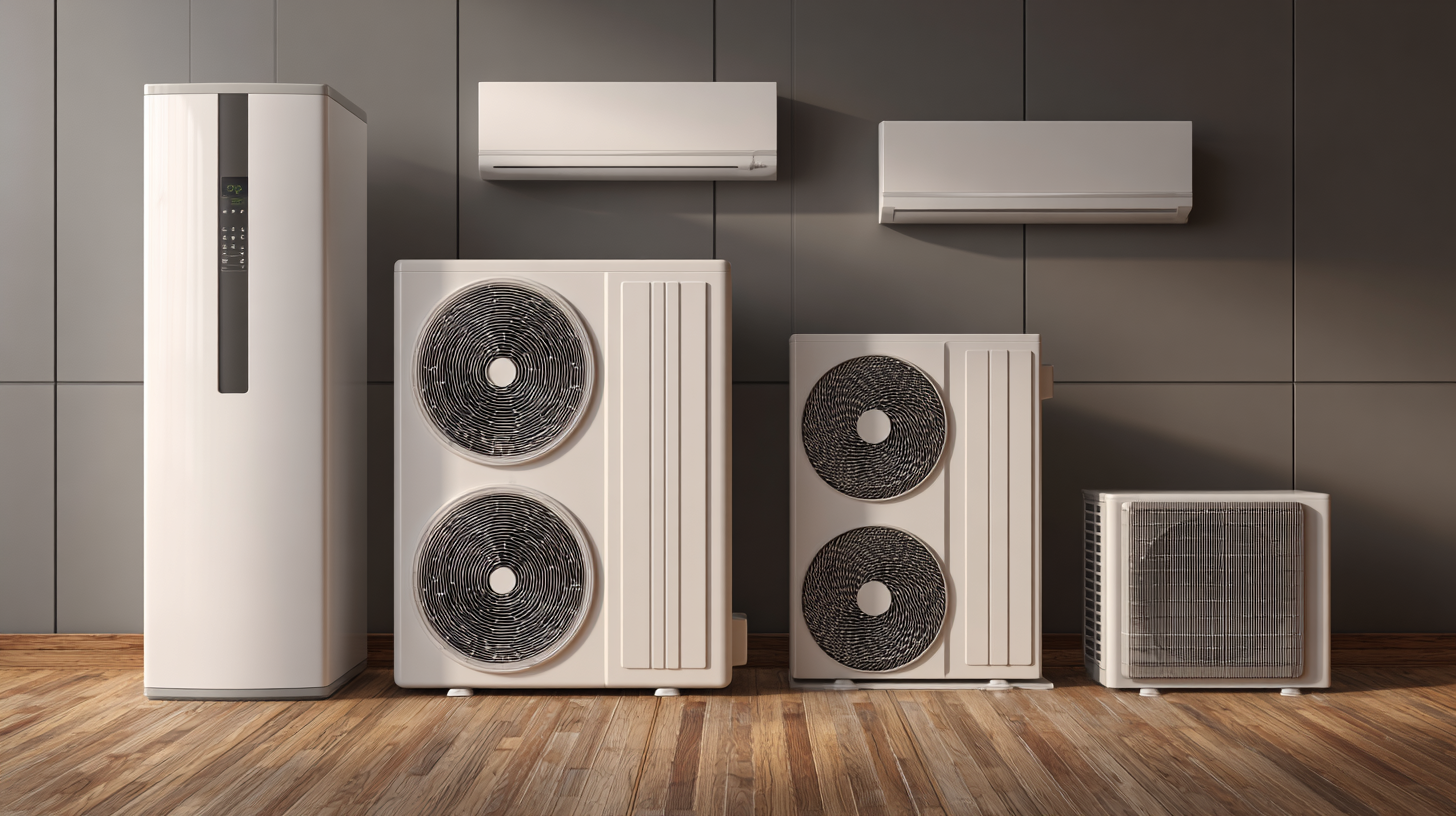 Inverter heat pump technology represents a significant advancement in energy efficiency and climate control. Unlike traditional heat pumps, inverter models adjust their compressor speed in response to the indoor temperature, maintaining a consistent and comfortable environment while saving energy. This modulation allows the system to operate more effectively, leading to a remarkable 40% improvement in efficiency observed in 2023. Users can benefit from lower energy bills and reduced carbon footprints, making inverter heat pumps an eco-friendly choice for home heating and cooling.
Inverter heat pump technology represents a significant advancement in energy efficiency and climate control. Unlike traditional heat pumps, inverter models adjust their compressor speed in response to the indoor temperature, maintaining a consistent and comfortable environment while saving energy. This modulation allows the system to operate more effectively, leading to a remarkable 40% improvement in efficiency observed in 2023. Users can benefit from lower energy bills and reduced carbon footprints, making inverter heat pumps an eco-friendly choice for home heating and cooling.
Key features of inverter heat pumps include their ability to heat and cool spaces efficiently, as well as their quiet operation compared to traditional units. Enhanced customer comfort comes from the constant temperature regulation, which minimizes temperature fluctuations. Additionally, inverter heat pumps often come with smart technology integrations, allowing homeowners to control the system remotely and optimize energy use further. Understanding these key features can guide consumers in selecting the best inverter heat pump for their needs, ensuring improved performance and sustainability in their heating and cooling solutions.
The year 2023 marked a significant turning point in the evolution of inverter heat pumps, achieving an impressive 40% improvement in efficiency. This leap is not merely a statistic; it represents the culmination of advanced engineering and innovative technology aimed at enhancing energy utilization in residential and commercial heating applications. Understanding the factors contributing to this efficiency gain is essential for consumers and industry professionals alike as they seek to capitalize on these advancements.
One of the key drivers behind this efficiency improvement is the integration of advanced inverter technology, which allows for precise modulation of power consumption based on real-time heating demands. By adjusting the compressor speed dynamically, inverter heat pumps can operate more efficiently across varying conditions, leading to reduced energy wastage and lower operational costs. Additionally, enhancements in heat exchanger design and refrigerant performance have played pivotal roles in achieving these efficiency benchmarks, ensuring that heat pumps remain competitive against traditional heating solutions.
This bar chart illustrates the efficiency improvements observed in inverter heat pumps from 2020 to 2023, showcasing a significant 40% increase in efficiency in 2023. This data highlights the advancements in technology that contribute to better energy performance and sustainability in heat pump systems.
When selecting the right inverter heat pump for your home, several critical factors come into play. Firstly, evaluating the energy efficiency rating is paramount. The advancements in heat pump technology have led to significant improvements in efficiency, with recent models showcasing a 40% jump in performance. Look for units with high Seasonal Energy Efficiency Ratios (SEER) and Heating Seasonal Performance Factors (HSPF) to ensure long-term savings on your energy bills.
**Tip:** Consider your local climate when choosing a heat pump. Inverter models excel in both heating and cooling efficiency, but their performance can vary based on outdoor temperatures. For colder regions, select a heat pump that maintains efficiency in low temperatures.
Another essential factor is the size of the system. An oversized heat pump can lead to inefficiencies and increased wear, while an undersized unit may struggle to maintain comfortable temperatures. Proper sizing ensures optimal performance and comfort throughout the year.
**Tip:** Consult with a professional to perform a load calculation for your home. This assessment considers the dimensions, insulation, and windows to recommend the right size, ensuring you choose a heat pump that meets your specific needs.
| Model Type | Efficiency Rating (COP) | Heating Capacity (kW) | Cooling Capacity (kW) | Noise Level (dB) | Price ($) |
|---|---|---|---|---|---|
| Inverter A | 5.0 | 8.5 | 9.0 | 45 | 2,200 |
| Inverter B | 4.8 | 7.5 | 8.0 | 50 | 1,950 |
| Inverter C | 4.5 | 6.8 | 7.5 | 55 | 1,700 |
| Inverter D | 5.2 | 9.0 | 10.0 | 42 | 2,500 |
As we approach 2025, the landscape of inverter heat pumps has transformed significantly, particularly following the notable 40% efficiency improvement observed in 2023. This advancement not only enhances energy savings but also impacts cost-effectiveness for consumers. According to the latest report from the International Energy Agency (IEA), inverter heat pumps have demonstrated operational cost reductions of up to 30% due to their improved efficiency ratings. This marks a pivotal shift for homeowners considering upgrades or new installations.
In our comparative study of the top five inverter heat pumps for 2025, we analyzed performance metrics, installation costs, and user satisfaction. Models such as the Daikin Altherma 3 and Mitsubishi Ecodan consistently ranked highly, with coefficients of performance (COP) exceeding 5.0, effectively delivering more than five units of thermal energy for every unit of electricity consumed. Additionally, consumer feedback highlighted the importance of upfront investment versus long-term savings, with the upfront costs of these advanced systems being offset by their impressive lifespan and lower energy bills.
As the market continues to evolve, selecting an inverter heat pump that balances performance and cost will be crucial for optimal home energy management.
The inverter heat pump market is witnessing a significant transformation, driven by continuous advancements in efficiency and technology. Insights from 2023 indicate a remarkable 40% improvement in energy efficiency for these systems, setting a new benchmark that enhances both performance and sustainability. As more homeowners and businesses recognize the benefits of inverter heat pumps, their adoption is projected to surge. This aligns with the broader North American HVAC market, which is expected to grow from $51.61 billion in 2025 to $75.75 billion by 2032, reflecting a compound annual growth rate of 5.6%.
Looking beyond 2025, trends indicate that the focus will shift towards integrating smart technology and enhancing user experience. Future iterations of inverter heat pumps are expected to further optimize energy consumption through advanced algorithms and real-time monitoring systems. Additionally, as regulation around energy efficiency becomes stricter, manufacturers will be compelled to innovate, resulting in even higher performance ratings. This evolution not only meets the growing demand for eco-friendly solutions but also positions inverter heat pumps as essential components in the quest for achieving net-zero emissions in the HVAC sector.
